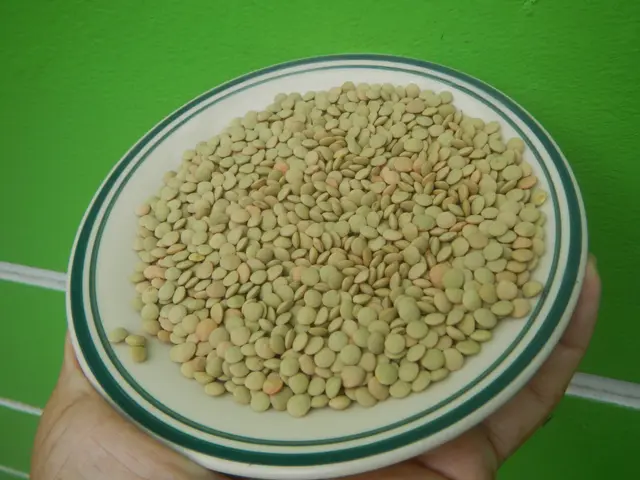Top 7 Nutrient-Rich Foods Fueling Child Development
Maintaining a balanced diet is crucial for growing children, as it ensures they receive the necessary nutrients for proper growth, development, and high energy levels for various activities. Here are some superfoods that can help parents create nutrient-dense meals for their children.
Berries
Rich in flavonoids, berries such as blueberries, strawberries, raspberries, and others support brain health and cognitive function. They can be given as a snack, added to smoothies or yogurt, or used as toppings.
Omega-3 Sources
Omega-3 fatty acids are essential for brain development, memory, focus, and learning. They can be found in fatty fish like salmon, tuna, and mackerel, as well as in plant sources such as chia seeds, flaxseeds, and walnuts. If fish intake is low, omega-3s can be given via supplements like children's cod liver oil or low-sugar gummies.
Iron-Rich Foods
Iron is critical for growth and cognitive development. Leafy greens (spinach), beans, lean meats, and iron-fortified cereals are good sources of iron.
Vitamin A Sources
Carrots, sweet potatoes, spinach, and eggs are rich in Vitamin A, which supports vision and immune function.
Vitamin C Sources
Oranges, strawberries, and bell peppers are high in Vitamin C, which enhances immunity and aids in iron absorption.
Calcium-Rich Foods
Dairy, broccoli, and fortified orange juice promote strong bones and teeth.
Zinc Sources
Nuts, beans, whole grains, and poultry are good sources of zinc, which supports healing and immunity.
In addition to these foods, chia seeds can be used as an egg substitute in baking and for pasta dishes, and added as toppings to oatmeal and smoothies. Nuts can be added to trail mix, used as toppings for ice cream and yogurt, or used as nut butter in sandwiches or as a topping or dip. Oats, a rich source of B vitamins, potassium, zinc, and fiber, can be used when baking and pureed to add to soups.
A busy lifestyle may make it difficult to prepare healthy meals and snacks every day. In such cases, these nutrient-dense superfoods can help ensure children get the necessary nutrients when balanced meals or healthy snacks aren't frequently available. However, it's important to note that supplements may be considered after pediatrician consultation, especially if dietary intake is limited or selective, or if medical concerns exist.
Store-bought, ready-to-eat meals and treats are often high in empty calories, fat, and sugar content. Therefore, it's encouraged to prepare meals at home using these superfoods whenever possible. Oatmeal, rich in B vitamins, potassium, zinc, and fiber, is a good option for a balanced breakfast.
Kale, collard greens, spinach, and Swiss chard are examples of healthy green leafy vegetables considered superfoods. Kids require nutritious foods to maintain high energy levels for various activities. Fresh blueberries can be given as a snack, added to smoothies or yogurt, or used as toppings.
In summary, integrating berries, omega-3 sources, iron-rich plant and animal foods, and a variety of fruits and vegetables high in vitamins A, C, and minerals like calcium and zinc, provides a robust nutritional base to support child development even with less frequent balanced meals.
- Berries, such as blueberries, strawberries, raspberries, and others, support brain health and cognitive function, making them ideal for snacks or additions to smoothies, yogurt, and various dishes.
- Omega-3 fatty acids, found in fatty fish like salmon, tuna, and mackerel, or in plant sources like chia seeds, flaxseeds, and walnuts, are vital for brain development, memory, focus, and learning.
- Iron is crucial for growth and cognitive development, and can be obtained from leafy greens (spinach), beans, lean meats, and iron-fortified cereals.
- Vitamin A, abundant in carrots, sweet potatoes, spinach, and eggs, is essential for vision and immune function.
- Vitamin C, found in high quantities in oranges, strawberries, and bell peppers, enhances immunity and aids in iron absorption, making it a valuable component in a child's diet.







